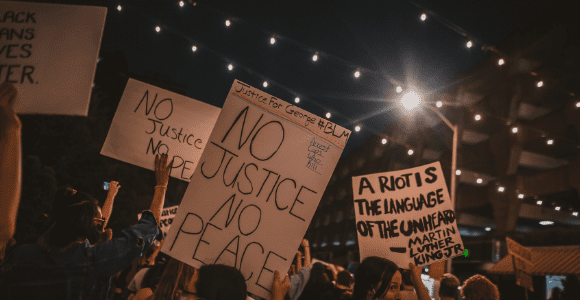Welcome readers! Please subscribe through the buttons on the right.
(Read this series from the beginning at Part 1 and Part 2.)

Again, the kind of repentance that leads to that kind of forgiveness, then, is a social rethinking of the current social course of injustice and implies a society, not just a few individuals, choosing to embrace a different path filled with a more just set of policies for the polity.
American, Western Christianity, like American society overall, has a long history of focusing on individuals ‘ personal, private sins rather than the public, political, systemic sins of the larger society. If followers of Jesus are only focussed on private or personal, individual sins, then public social injustice that benefits the powerful goes unaddressed, untouched, and unchanged.
Exchanging the public for the personal, or choosing to focus on the private instead of the political, has had a long history, especially among Christians, of being used by the powerful to protect their privilege.
This past Easter I read a powerful poem by the very talented poet, Kaitlin Shetler. The poem’s title is State. The very first line reads:
“my sins did not
nail him to
the cross
that was the state”
In the poem Shetler goes on to contrast confusing the “personal” for the “principalities,” and the “personal” with “state-sanctioned oppression.”
You can read the poem in its entirety, and I recommend doing so, on Kaitlin’s Facebook page for her poetry: https://www.facebook.com/kaitlinhardyshetler/posts/144155307119366
And now we can put all the pieces of this week’s passage together. The passage states,
“The Messiah will suffer and rise from the dead on the third day so that repentance for the forgiveness of sins will be preached in his name to all nations.”
Remember what we’ve been saying for the past few weeks. The cross interrupted Jesus’ life-giving ministry and teaching, and it was intended to be permanent. It was meant to silence Jesus’ calls for change, but the resurrection overturns it. The resurrection undoes and reverses everything accomplished by Jesus’ death. It overturns the state-sanctioned violence that places Divine solidarity on the side of the Roman state instead of on the side of the kind of society envisioned in the teachings of Jesus. The resurrection causes the vision of that kind of society to be born anew and to live on in the lives of Jesus’ followers. The resurrection doesn’t conquer death with more death, even just one more death, but by resurrecting life. It answers death with death-reversing life. It answers death-dealing injustice with life-giving justice. And it places the God of the Jesus story squarely on the side of justice and in the midst of the crucified community, the marginalized, the excluded, the vulnerable.
The resurrection unequivocally proclaims the solidarity of the God of the Jesus story with the marginalized in any given society. And in this way, I believe, that symbol of resurrection, of love conquering hate, of life overcoming death, of justice not being able to be held by an unjust tomb, has the potential to inspire a kind of social repentance, a rethinking of a society’s current path. The hope is that this rethinking will cause a different doing. That we will choose to shape society differently. And it’s that different doing that, within the justice tradition of the Hebrew prophets, is envisioned as ultimately bringing social change and liberation, i.e. forgiveness of social sins and different path set for the future.
This is a story that is meant to give us pause. It’s a story that is meant to create in us a reassessment of the kind of society we find ourselves surviving in. And it’s a story that is intended to awaken in us the choice to shape a different kind of society, where those presently marginalized are centered, where surviving is replaced with thriving, a society that is a safe, compassionate, just home for everyone.
It may take a more political lens of interpreting the Jesus story for us to arrive at this conclusion and vision of our present society as well as our work toward something better. But it’s a choice that I believe in the end will be worth it.













